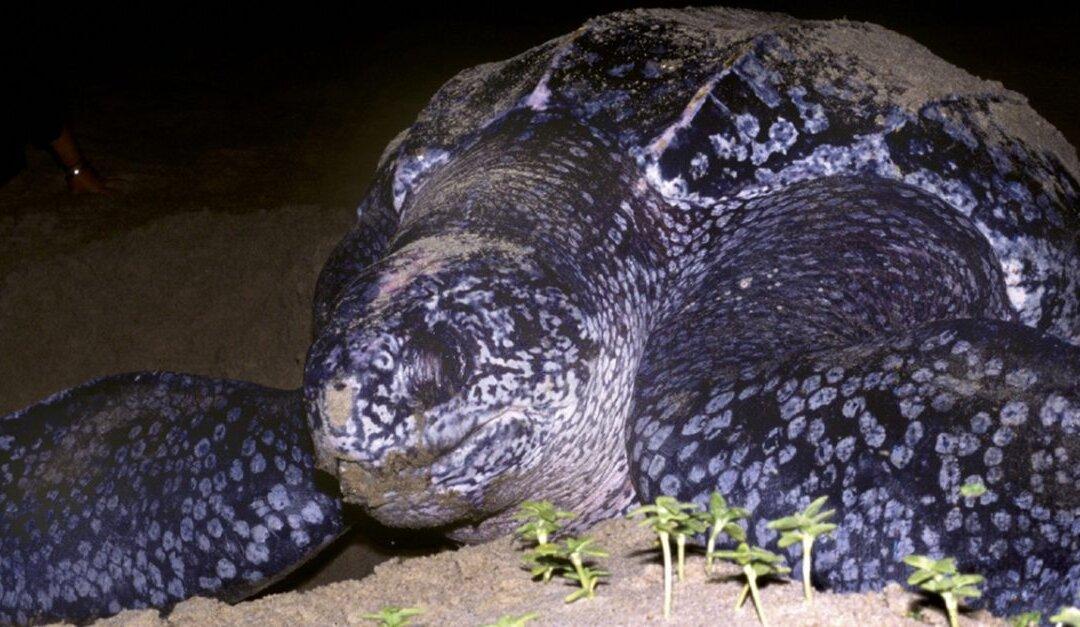A shocking video has surfaced showing people on a beach in Indonesia cruelly riding on the back of a giant leatherback turtle, which is visibly in distress from carrying the weight of as many as three people at one time.
The clip was reportedly filmed on Asukweri beach on July 5, according to Newsflare, and shows adults and children climbing on top of the turtle, going for rides, and posing for photos.





